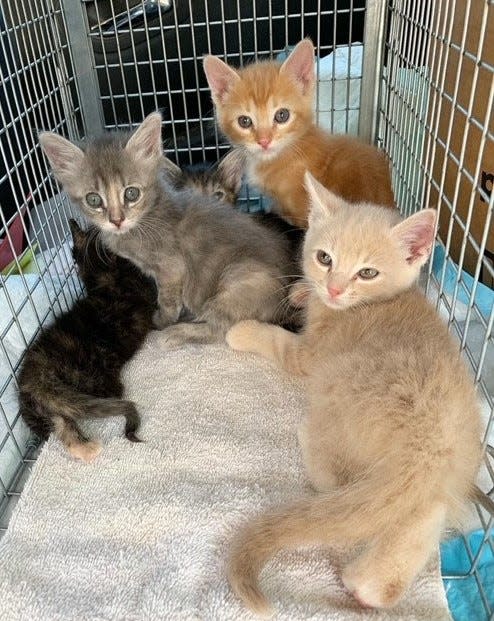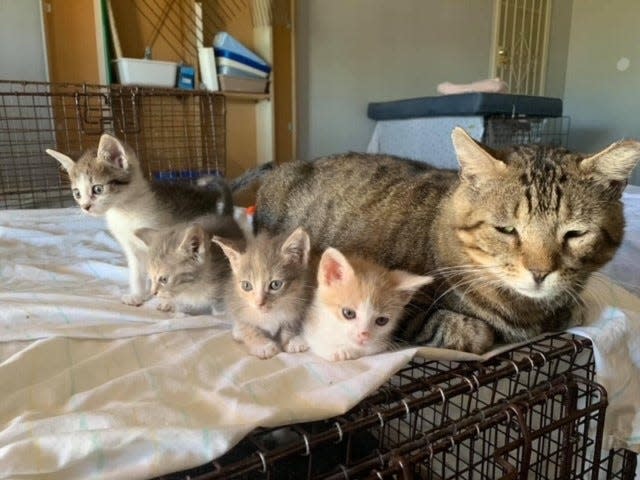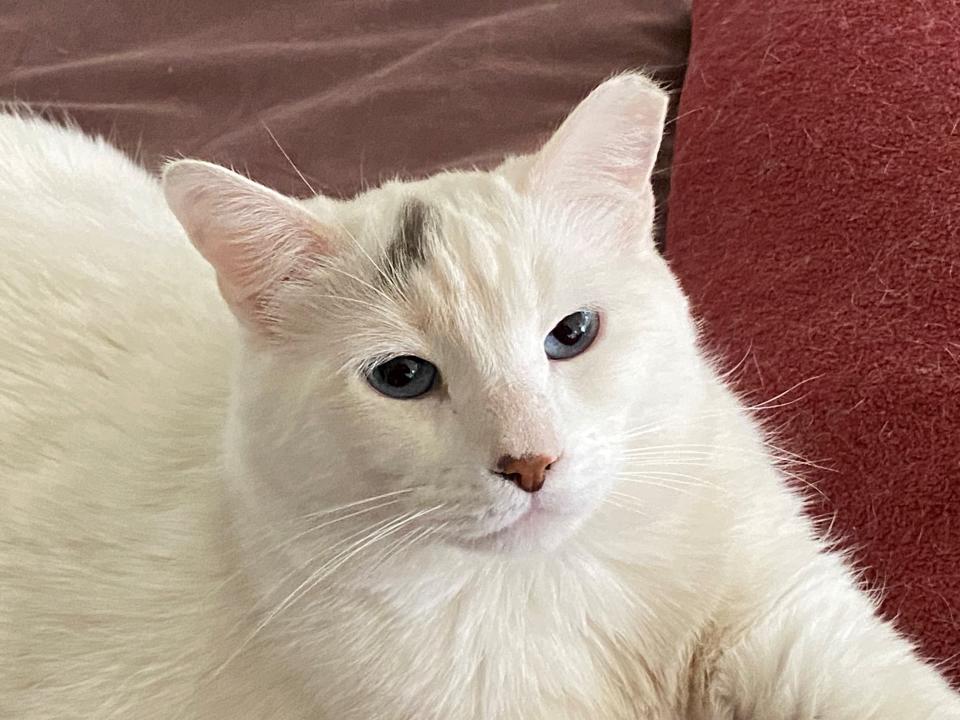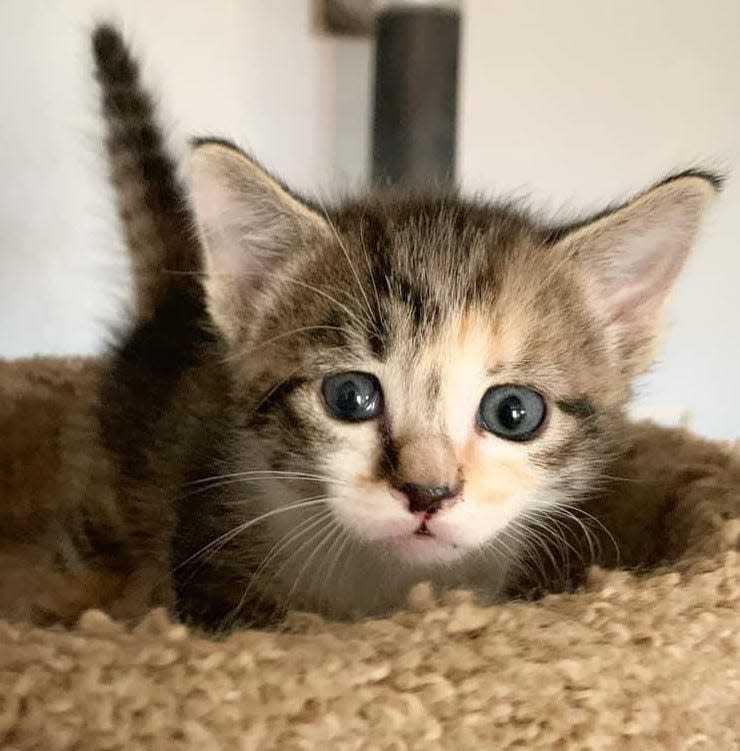Kittens will soon overwhelm ASCMV — here's what you can do about it

For some folks, the arrival of spring is all about Peeps and chocolate Easter bunnies and the return of the hummingbirds.
For those in our animal welfare community, it means something else: the annual deluge of community cat kittens flooding the ASCMV and the local rescues. (The basic definition of a community cat is one that is unowned and free roaming.)
Although kittens can be born at any time of year, cats generally reproduce in the spring and summer as the days get longer, and mild southern New Mexico weather means early spring kittens have a higher survival rate than in colder climes.
Researchers in New Zealand and Australia are studying how higher temperatures brought about by climate change may increase community kitten survival rates in more temperate climates, leading to further worsening of the already-serious problem of cat overpopulation. Anecdotal evidence in the United States suggests this is already happening in the Pacific Northwest.
I found a litter — what do I do?
Your first compassionate instinct when you find a litter of seemingly motherless community cat kittens might be to gather them up and bring them to the ASCMV. But not so fast!
When kittens are brought in to the ASCMV (or any of the rescues) without their mothers, it’s a scramble to find fosters willing and able to bottle-feed them every two hours, including overnight, as well as keep them toasty warm. (There are a finite number of people able to do this, worth their weight in solid gold.) Even then, the kittens don’t have a great chance of survival without the first few days of mother’s milk (called colostrum), and many simply fail to thrive and subsequently die. Their undeveloped immune systems also make them extremely vulnerable to illness, a serious issue at a high-volume facility like the ASCMV. If we can’t find an appropriate foster, the kittens are euthanized — the ASCMV does not have staffing resources for 24-hour care.

According to the best practices of Best Friends Animal Society, first make sure the kittens really are abandoned. Keep an eye on them for 12 to 18 hours, and if the kittens seem content and not distressed, it’s unlikely they have been abandoned. If the kittens are in a dangerous location, you can move them, but not too far away so that mom can find them. If the kittens do appear in distress or dirty or sick, a conversation with a local rescue or the ASCMV can help determine if and how you should intervene.
More: Ready to foster a kitten that needs to be bottle fed? Here's how.
If you spot mom, keep an eye on the little family and work with the ASCMV or a local rescue to get them all spayed or neutered when they are at least 8 weeks old and then return them to where they came from. This process is known as trap-neuter-return (TNR), considered the most humane method of preventing cats from entering a shelter system and reducing the number of community cats over time.
Why is my cat missing part of its ear?
The ASCMV always advocates for owned cats to be kept indoors and safe from animal and human predators and to keep wildlife safe from them. That said, many people still allow their cats to roam outside.

The City of Las Cruces animal ordinance has replaced animal licensing with a requirement that all pets be microchipped. If your pet cat is not chipped, has no other identification with your contact information (e.g., collar with tags), and is called in as a stray and picked up by City of Las Cruces Animal Control or Doña Ana County Animal Control, your cat will be considered a community (unowned) cat and treated as such. This means that it will be humanely trapped, taken to the ASCMV, vaccinated, microchipped, sterilized and returned to where it was picked up.
While under anesthesia, the cat’s ear will be “tipped,” meaning a small portion (about a centimeter) of its ear will safely be removed. This is a universally accepted symbol to indicate a community cat has been sterilized. Ear-tipping is done while the cat is anesthetized for spay/neuter surgery and will heal quickly.
For the love of cats
The ASCMV can’t solve the cat overpopulation problem alone, and neither can the rescues. But as a community we can’t ignore the problem.
You may not be able to get out there yourself and TNR cats, but you can still help by giving generously to organizations that do, such as Broken Promises SW (find them on Facebook @HelpKittenArthur).

You may not be able to provide financial assistance to everyone who can’t afford to sterilize their cat at the vet, but you can help by gifting to organizations like Spay Neuter Action Program (SNAP) that help low-income households access spay and neuter services (snapnewmexico.org).
Maybe sponsor some surgical slots at The Cat’s Meow Adoption Center mobile clinics (thecatsmeowlascruces.com), or get your cats microchipped — or sponsor chips for others — at one of ACTion Programs for Animals (apalascruces.org) microchip events. We’re all in this together, doing the best we can. Please join us in working to make Doña Ana County a better place for animals and people.
Elaine Stachera Simon writes for the Animal Services Center of the Mesilla Valley. Follow on Facebook (facebook.com/ASCMV), check out ascmv.org or call 575-382-0018.
More Notes from the Animal Services Center of the Mesilla Valley:
This article originally appeared on Las Cruces Sun-News: Kittens will soon overwhelm ASCMV

